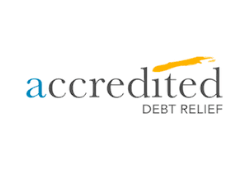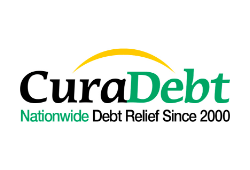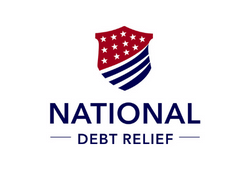What Percentage of a Debt Is Typically Accepted in a Settlement?
Unsettled debts pose a problem for everyone involved. For the borrower, a debt they can’t pay up is often a financial nightmare, accompanied by unhealthy amounts of anxiety. For the creditor, it spells trouble.
That’s where debt settlement comes in. Debt settlement is an agreement between two parties - one a borrower and the other a lender - for a one-time payment to cancel out the remaining debt balance. Most times, creditors realize that full payment for a debt might not be possible, so they opt for debt settlement.
Let’s consider an example. Take, for instance, Mr A, who owes $15,000 on a credit card and may be finding it financially challenging to repay this balance.
With the concept of debt settlement, he may approach his credit card company, offering to pay $10,000, which is probably a more comfortable amount for him to handle.
In return for a one-time payment, the credit card company may agree to this, thereby forgiving the remainder of the credit card debt, which is $5,000.
However, it’s not always this clear-cut, as different loan structures require different approaches to debt settlement.
What Percentage Should You Ask a Creditor To Settle for After a Judgment?
First of all, you should know that a lender is more likely to agree to a debt settlement agreement if they view the debt as likely to be written off. Another reason is that they, too, could be in need of cash at the moment.
Since most loans involved in debt settlements are unsecured - meaning there is no property to seize in place of repayment defaulting - the creditor is often better off accepting part payment, as opposed to getting nothing at all.
Lenders typically agree to a debt settlement of between 10% and 50%. Several factors may influence this amount, such as the debt holder’s financial situation and available cash on hand.
You can opt to handle the settlement plan yourself or with the help of a debt settlement specialist. After a judgment has been reached, you are legally under an obligation to make that settlement.
While it’s generally better to settle a debt before there is a judgment, in the event you don’t have such a luxury, you should aim to pay 50% or less of your unsecured debt. Most creditors are willing to take 30% to 50%.
Find a Reliable Debt Settlement Service Provider
Accredited Debt Relief
Fortunly's Rating: Our editorial team determines the rating based on a set of evaluation criteria developed for each product and service category.

Accredited Debt Relief is based in San Diego and boasts accreditations by the Better Business Bureau and the American Fair Credit Council. The company has been in business since 2011 and has helped over 200,000 people get out of debt. It offers a free consultation to help you find out if you qualify for their program. If you do, they will work with your creditors to help you pay off your enrolled debts in as little as 12 to 48 months.
- •Lower your debt by up to 30% or more
- •Consolidate multiple payments into one
- •1-on-1 help from Certified Debt Specialists
CuraDebt
Fortunly's Rating: Our editorial team determines the rating based on a set of evaluation criteria developed for each product and service category.

With over 21 years of experience nationwide, CuraDebt has helped over 300,000 customers consolidate their debts and avoid a collection agency settlement. CuraDebt offers free debt analysis to see if you qualify for its consolidation program, and on top of those programs, it also provides tax relief services for those who need them.
- •Free consultations
- •Tax relief services
- •Low minimum debt requirement
National Debt Relief
Fortunly's Rating: Our editorial team determines the rating based on a set of evaluation criteria developed for each product and service category.

A tried-and-true company established in 2009, National Debt Relief is an accredited member of the AFCC, IAPDA, and BBB with an A+ rating. The company helps users settle unsecured debts, credit card debts, personal loans, lines of credit, and much more for as little as 15% to 25% of the total debt amount.
- •Works with a range of unsecured debts
- •Excellent ratings and reviews
- •Extensive educational resources
How To Negotiate a Judgment Settlement
As mentioned, handling a debt settlement can either be accomplished using a debt relief company or doing it yourself. Negotiating a judgment settlement can be difficult, but doing it yourself can save you a lot of additional fees and time compared to hiring debt relief companies.
Here are the steps to take when negotiating with your creditors directly.
Consider if You Are a Good Enough Candidate
Before taking on debt settlement yourself, analyze if it’s really a good option for you. Ask yourself these questions:
- Have you considered credit counseling or bankruptcy? Both of these options are more efficient. They are more likely to solve your debt issues faster, have faster recovery, and are less risky compared to negotiating a judgment settlement on your own. They also have better results.
- How delinquent are your debts? Most creditors will not even consider debt settlement unless the payments are at least 90 days late. In fact, settlement is more likely for debts that are approximately five months late.
- Can you settle financially? Whether your creditors want a lump sum or prefer a payment plan, you need to have the money for a settlement agreement.
- How confident are you? To successfully negotiate a settlement on your own, you need to be confident in yourself. If you aren’t, then perhaps you should hire a debt settlement company.
Know Your Terms
Another step to take is to be absolutely sure of the terms of the settlement. Two things matter the most: How much you can afford to pay and how it will reflect on your credit reports.
As mentioned earlier, you should aim for between 30% and 50% of your debt. While looking at a percentage, consider the actual dollar amount. It always helps to have a budget. Also, remember you may need to pay taxes on the amount erased on credit card debt forgiveness if it amounts to $600 or more.
Your credit has probably been damaged due to missed payments, but all hope is not lost. Clarifying how the settled debts are marked can help greatly. Settling old debts marks those debts as “Settled” or “Paid Settled.” It doesn’t exactly help credit reports.
To minimize the damage, you can request that your creditor instead marks it as “Paid as Agreed.”
Reach Out to Your Creditor
Now it’s time to bell the cat. Negotiating with your creditors will be tricky, requiring persuasion and persistence. This is perhaps the most important part of the process.
You might be able to reach an agreement in one call, or it might take several calls. Try as many times as you need to till you reach an agreement that works for you. If you’re not making progress with any reps, then ask for the manager. Be clear with the situation.
The amount creditors will settle for often depends on how well you can explain your financial difficulties so that they can sympathize with you.
Remember to stick to amounts you can actually pay. Start low. For instance, suppose you can only pay 50%, you should start from 30%, and work your way up. Don’t agree on what you can’t afford.
If all fails, consider a debt management program.
Close the Deal
As a rule, before you make any payments, have the agreement in legally binding writing. This holds everyone accountable. Your creditors are obliged to honor the agreement, but if a payment is missed, the agreement can be retracted as well.
Settlement With Collection Agency
Typically after a debt has been delinquent for about five months or more, the creditors pass on collection duties to debt collectors.
Some debt collectors are quick to hassle debtors to pay up their debts. They usually do this via phone calls. If you can afford the debt, or it’s simply something you can pay off, a written check will be enough to never hear back from them. However, most times, the reason you haven’t paid is that you simply can’t.
When both you and the debt collector are aware that paying outrightly is not an option, this is where debt settlement negotiations come in. Before you enter into negotiations, make sure to:
- Know your rights. You can’t be harassed, lied to, threatened, or even spoken to out of business hours.
- Consider your debt. What type of debt do you owe? This will help in understanding what you could ask for.
- Speak calmly and logically.
- Make your offer. Debt collectors may settle for around 50% of your debt. Just remember to negotiate low, so when they counter, you still have room.
How Much Will Debt Collectors Settle For?
A collection agency will be keener to accept a debt settlement agreement if you’re willing to pay at once. For instance, if you have a loan balance of, say, $5,000, and you suggest paying the collection agency $3,000 to get out of debt, they are more likely to agree.
The collection agency will take its fee, pay the balance to the original creditor, who will treat it as a business loss, and close the account.
Frequently Asked Questions
What is a reasonable full and final settlement offer?
This depends on what you can afford, but you would be better off offering equal amounts to each creditor as a full and final settlement. When you try to settle an old debt, for example, if the lump sum amounts to 75% of your total debt, you should offer your creditors 75% of the original amount owed.
What happens if you pay a settlement offer?
When you pay a settlement offer, the balance is brought to zero. However, it’ll show on your credit report that it was settled for less than the full amount. Settling is considered negative to your credit report. To minimize the damage, you can request that your creditor marks it as “Paid as Agreed” instead of “Settled.”
Should you accept a settlement offer from a collection agency?
An offer from a collection agency to settle a delinquent debt might just be what you need, especially if you can’t pay. Settling with a collection agency is not a bad idea, especially if what they are offering is something you are fine with. It’s a better alternative than being sued. However, if you can pay in full, you should do that instead.
Is it better to pay a collection in full or settle?
If you can afford to, you should pay your debt in full. However - as is often the case - if you can’t, then settlement might be your best bet. Just remember to ask that the payment be marked as “Paid as Agreed” as opposed to “Settled for Less Than the Full Balance,” as the latter could be harmful to your credit report.
Albert Einstein is said to have identified compound interest as mankind’s greatest invention. That story’s probably apocryphal, but it conveys a deep truth about the power of fiscal policy to change the world along with our daily lives. Civilization became possible only when Sumerians of the Bronze Age invented money. Today, economic issues influence every aspect of daily life. My job at Fortunly is an opportunity to analyze government policies and banking practices, sharing the results of my research in articles that can help you make better, smarter decisions for yourself and your family.





